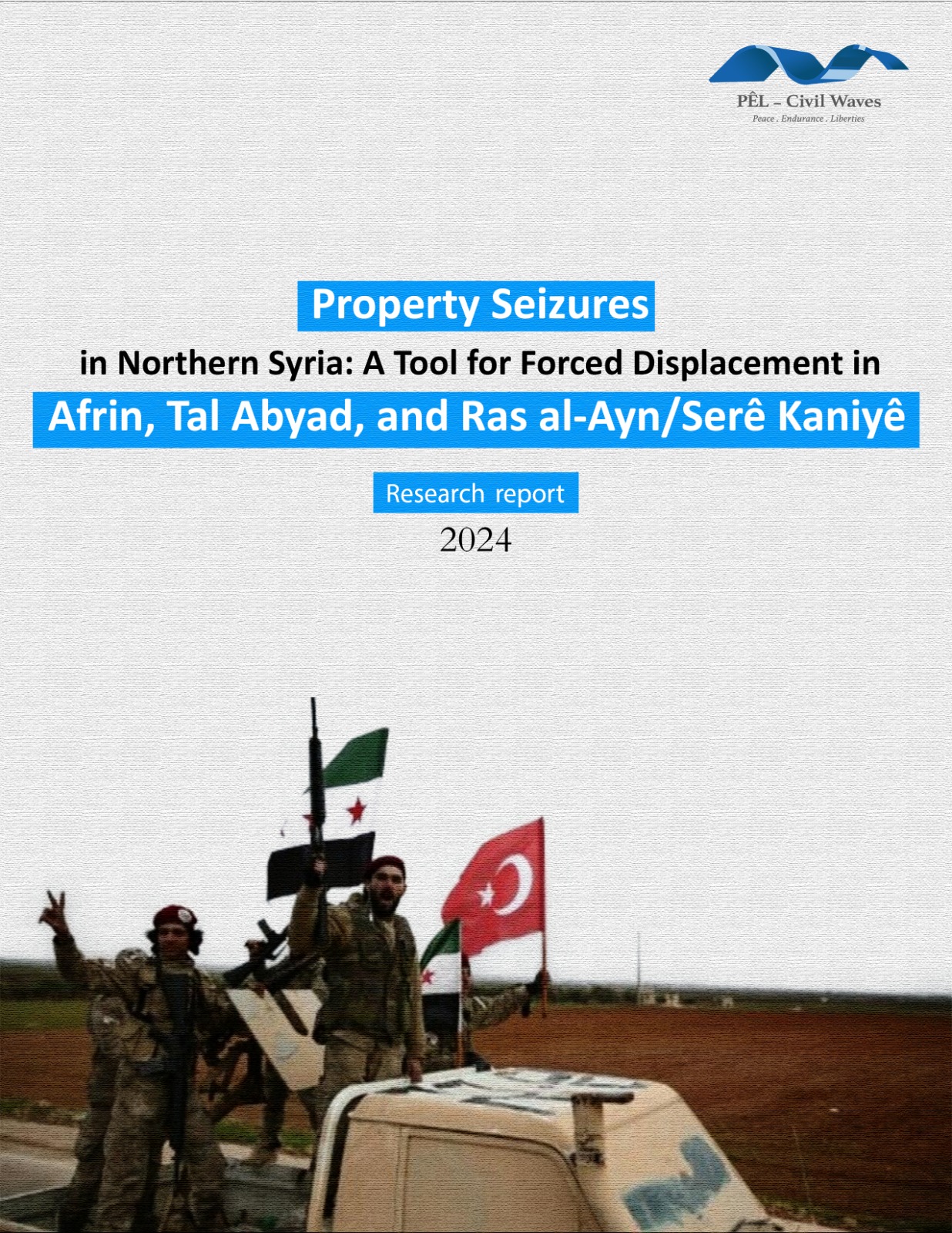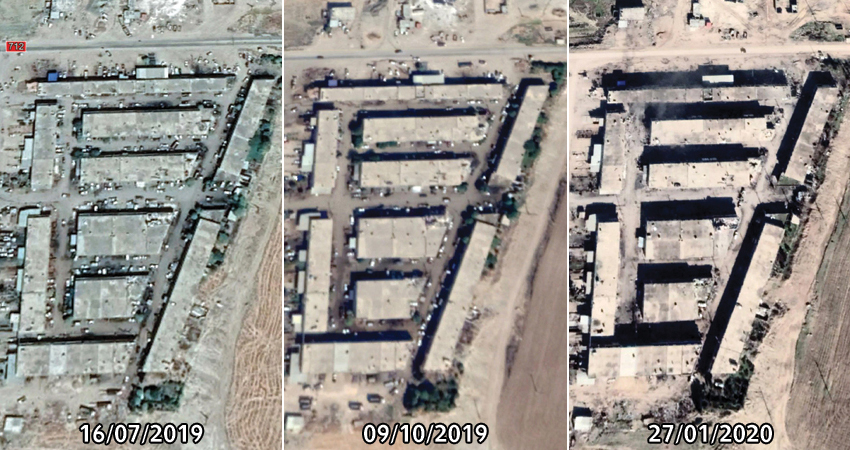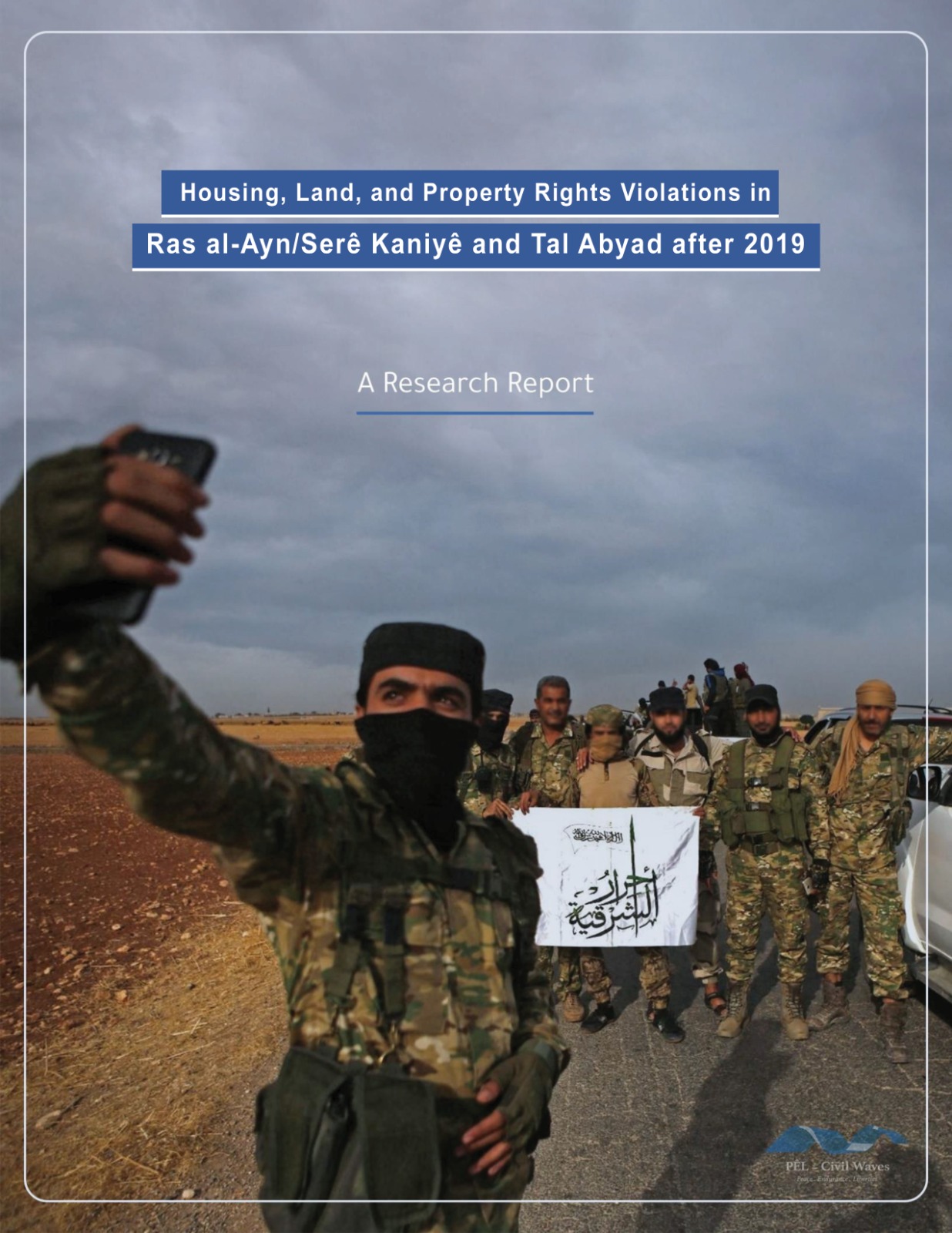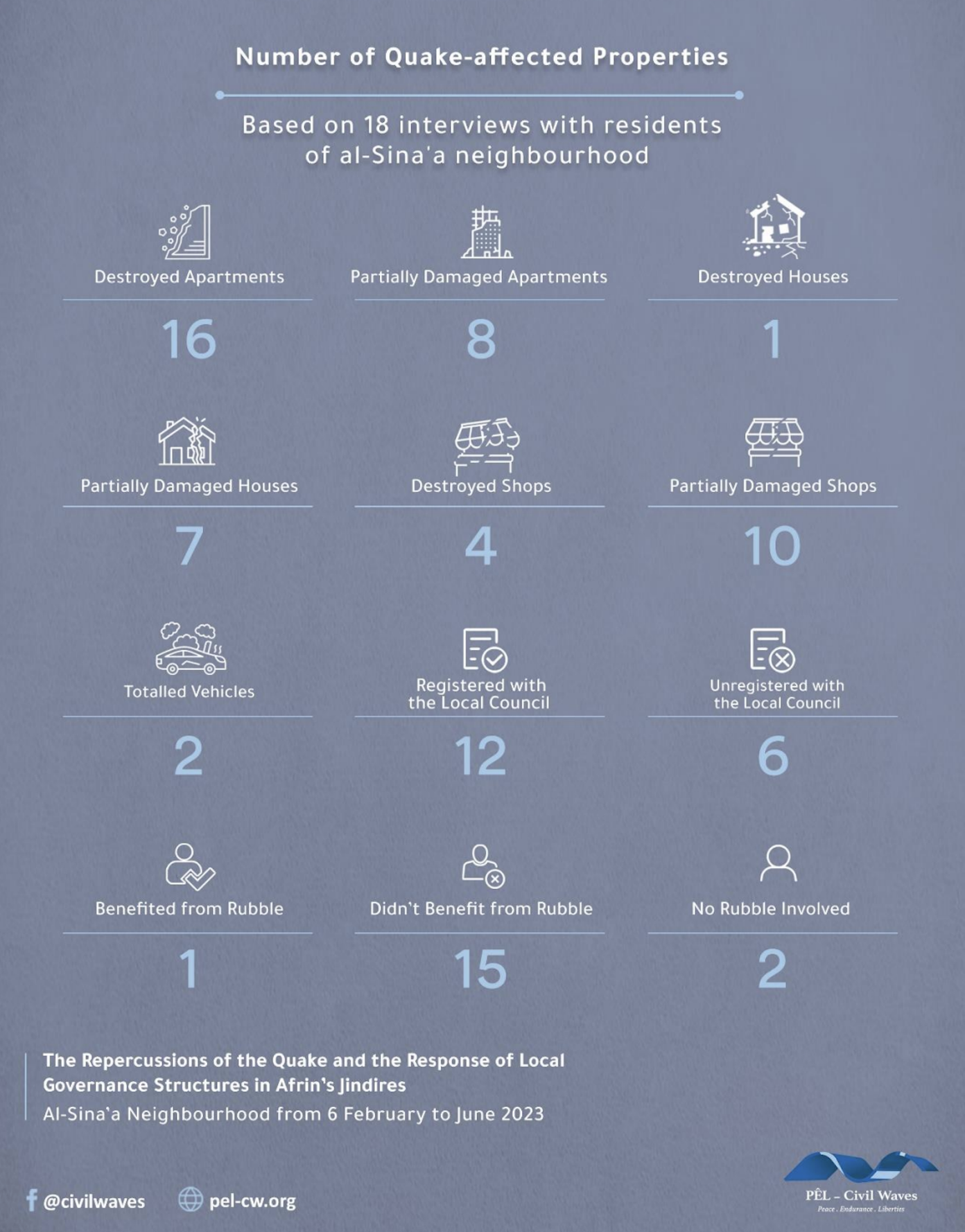Türkiye and affiliated SNA armed groups used property seizures and destruction as a tool to forcibly displace the three areas’ indigenous populations.
1. Executive Summary:
This report examines the systematic violations by the Syrian National Army (SNA) and Turkish military of housing, land, and property (HLP) rights in the Afrin region—occupied in March 2018—and Tal Abyad and Ras al-Ayn/Serê Kaniyê areas—occupied in October 2019—in northern Syria. The findings of the report demonstrate that these violations were a primary means of displacing the indigenous population, especially members of the Kurdish community, and changing the demographic composition in these areas.
Additionally, the report reveals that removals and forced displacement of the populace in the three areas were carried out by seizing or destroying residents’ properties, as well as denying them access to their properties and livelihoods, especially their homes and agricultural lands. Large swathes of farmlands, chiefly olive groves, were bulldozed, and the contents of homes were looted, sold, destroyed, and burned. Some properties were also transformed into military bases and headquarters for the Turkish military or SNA-affiliated armed groups or into warehouses for selling stolen items.
Furthermore, the testimonies underlying this report show that several of these violations’ victims were threatened with serious consequences should they contemplate returning to their hometowns and reclaiming their seized properties. In many cases, the victims’ statements were consistent with the reports of the Independent International Commission of Inquiry on Syria (COI) and human rights organizations.
For instance, the findings of this report corroborate violations documented in the COI’s report published on 14 August 2020 (A/HRC/45/31), which confirmed the presence of organized and widespread looting and seizure of property in Ras al-Ayn/Serê Kaniyê (Paragraph 49).
The actions this report documents breach a set of laws of war, in addition to several provisions of the U.S.-Türkiye “historic agreement,” which facilitated a ceasefire after the Turkish invasion of northern and eastern Syria. Such provisions include Article 4, which stipulates the protection of religious and ethnic communities, and Article 7, whereby Türkiye pledges to ensure the safety and well-being of residents of all population centers in the safe zone. The testimonies collected for this report leave no doubt that Türkiye failed to fulfill its commitment to the agreement with the U.S., instead disregarding it and, in some cases, committing actions that could amount to war crimes and, perhaps, crimes against humanity.
The report shows that the crime of forced displacement will likely have an adverse impact, especially on displaced people’s basic rights, as human rights are intertwined and interconnected, and achieving one is contingent on the realization of others. Moreover, this violation will factor into obstructing the political solution under UN Resolution 2254 of 2015 and lead to a change in the demographic composition across the Syrian geography, threatening to bring about a myriad of repercussions in the future.
To avoid, or at least mitigate, these potential repercussions, the report includes a set of demands or recommendations that must be put into action, whether at the level of the international community and actors in the Syrian affair; the present or future Syrian government; the Syrian opposition, currently represented by the Syrian Opposition Coalition (SOC) and the Syrian Interim Government (SIG), being operative in Türkiye-occupied areas; or at the level of the Kurdish National Council (KNC), the Autonomous Administration of North and East Syria (AANES), and civil society organizations (CSOs) in their broader sense.
To read more click the link:




